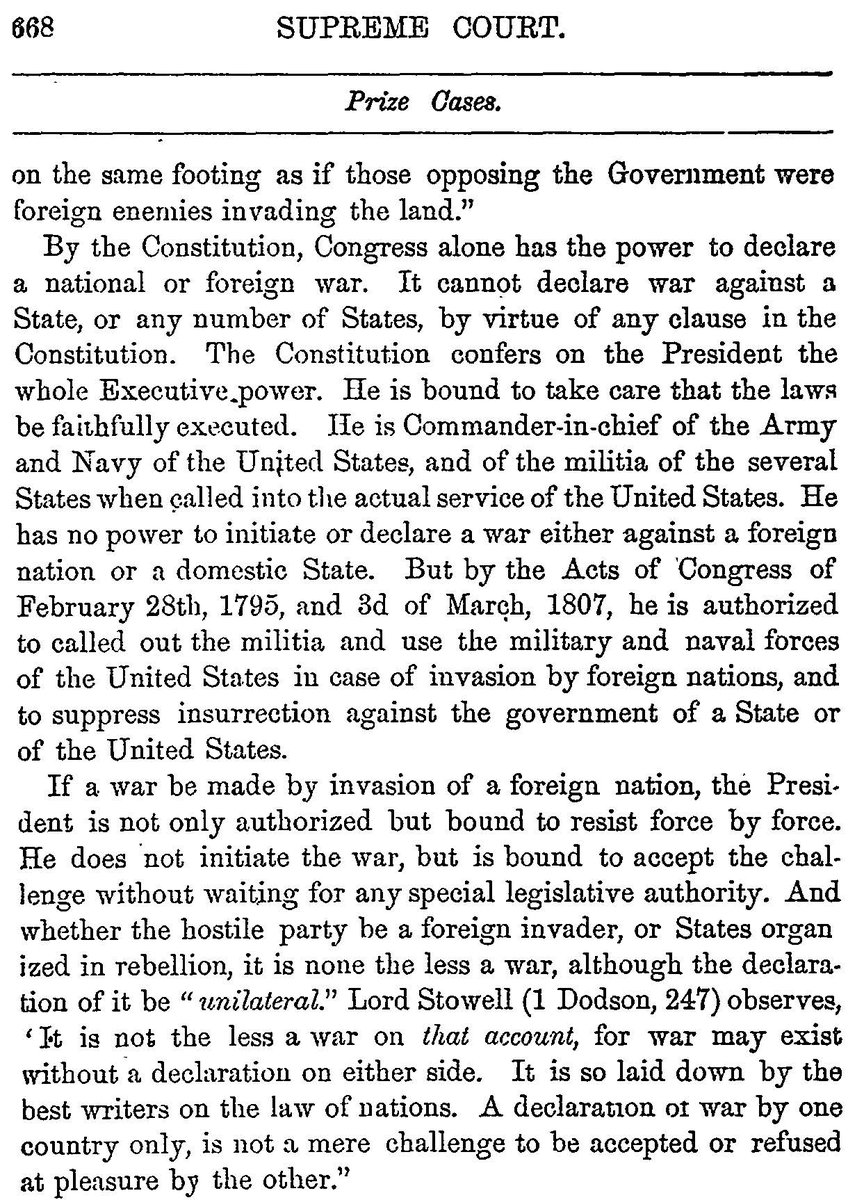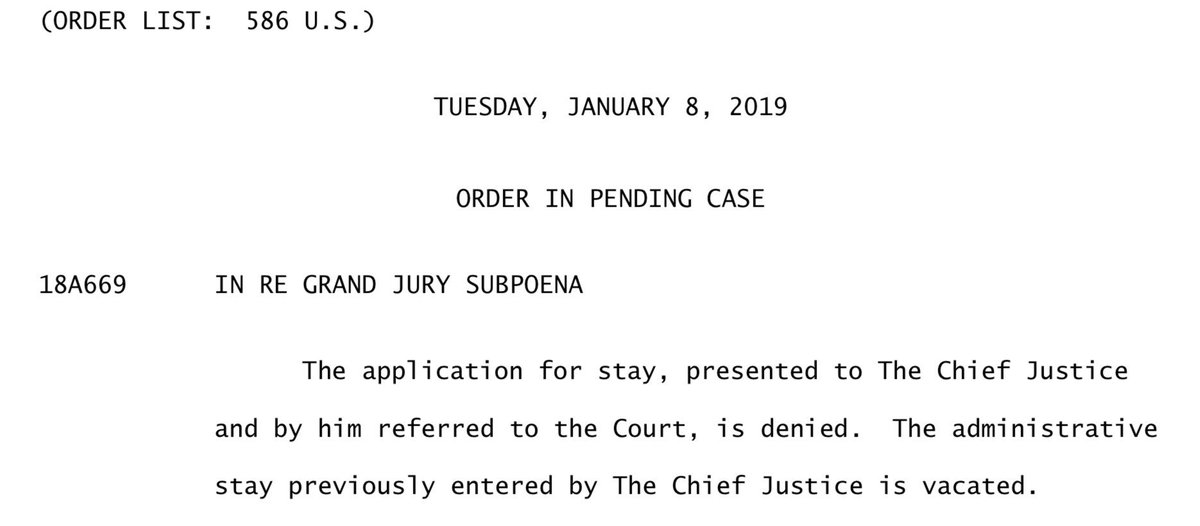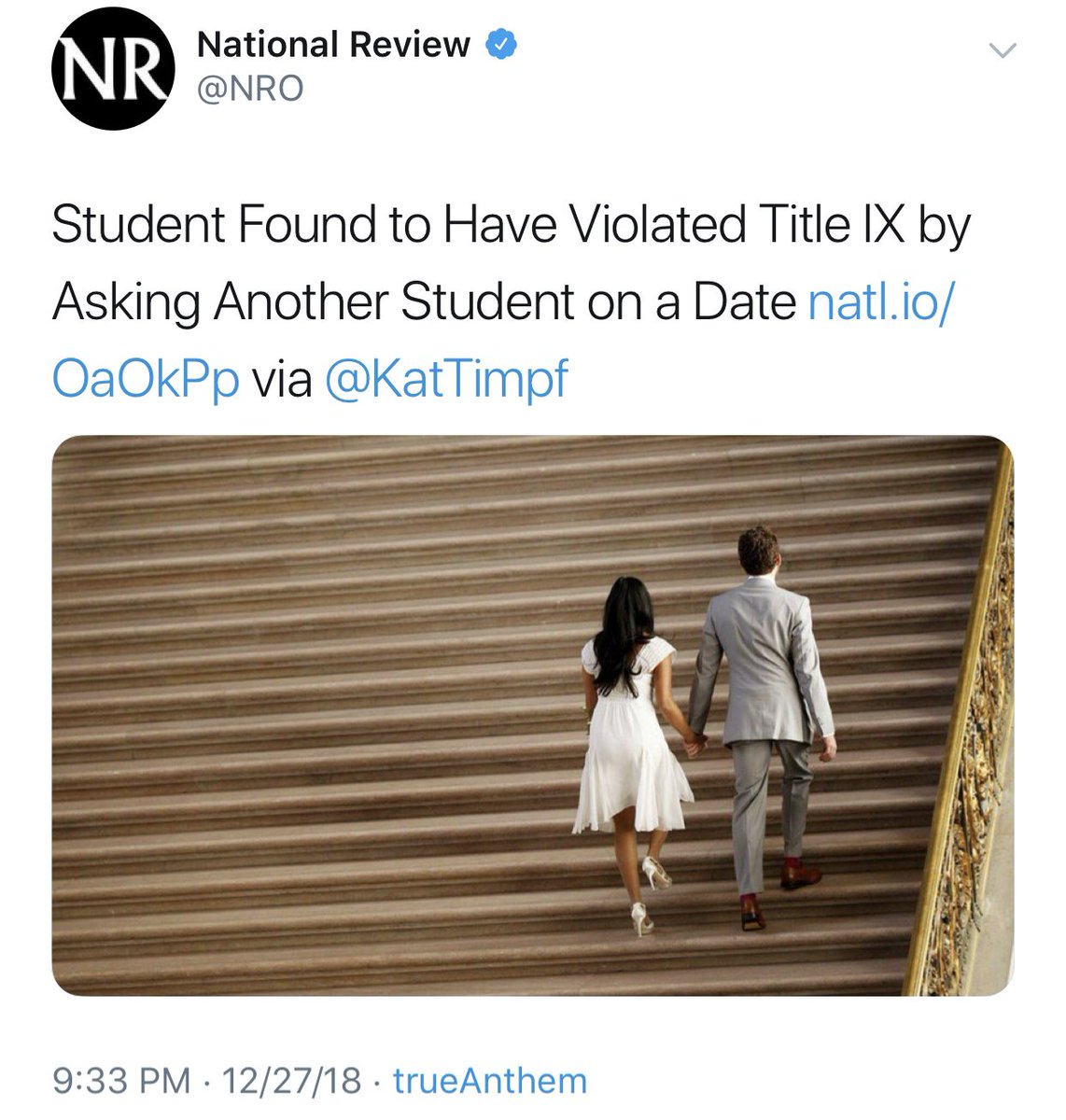But there's no argument whatsoever that the 2001 AUMF authorizes the use of force against _Assad_.

But the WPR itself specifies that it can't be read that way—as authorizing force:

There's general consensus that Article II authorizes the President to use force in "self defense."
law.cornell.edu/supremecourt/t…

Instead, they're defended under a broader theory—that Article II "self defense" includes "national interests."
It should also go without saying that the Prize Cases reasoning—that the President shouldn't have to wait for Congress to defend the country—doesn't apply to such a claim.
Instead, the remedies here are political.
If the Q. is whether there's precedent for them anyway, the answer is "sort of."
And if the Q. is how do we _fix_ this, the answer, alas, is "Congress."
/end







